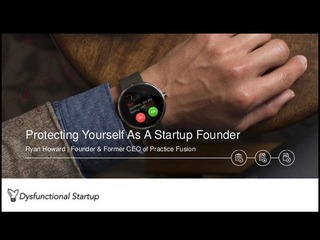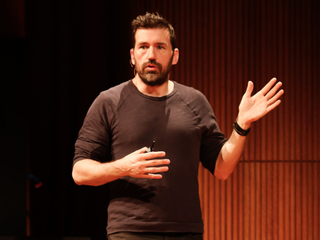
Fresh off raising its $5.5 million seed round last month, health monitoring wearable iBeat is back with new funding and as well as two new partners as it gets ready to launch its product in July.
On Thursday, the company announced that it has added $2.5 million to its seed round, bringing its total funding to $12.5 million.
The funding came from SCOR Life & Health Ventures and Transamerica Ventures, the venture arms of what Ryan Howard, founder and CEO of iBeat, calls “two of the top 10 largest life insurers in the United States.”
Founded in 2016, iBeat is a wearable technology company. Its device perpetually monitors and analyzes users’ heart activity, allowing them to take a more active role in their heart health.
If the device detects that something is wrong, and the user does not answer to say that they are alright, iBeat will then engage dispatch, calling them in real time, along with the user’s emergency contacts. That means that the wearer’s friends and can family see where they they are in transit, so they can meet them as the hospital.
The idea is to monitor heart health. For example, someone might give it to their elderly parent, who would not have an emergency every day, but could now be monitored 24/7, sending data to the cloud about their heart. The device could show when their heart was stressed, when they exercised, and be able to tell when there is the potential for a bigger problem.
iBeat will use the new funding to advance product marketing and expansion for its upcoming Heart Watch.
“We have the team we need and we’re relatively low capitalized. With any hardware company inventory is incredibly expensive, you have to pursue it up front, especially when you’re small it’s hard to get finance terms extended until you build credit, and you have to sell data there,” said Howard.
“So, the cash will be used for purchasing inventory, and then, candidly, just marketing the product aggressively. Those are our two major priorities with the capital right now. That’s really the gear we’re shifting into in the next 30 days. We’re launching next month so we’re really excited about it. Whether it’s hiring or dollars directly going to purchasing devices, or marketing, it’s all focused on those two items.”
The majority of iBeat’s go-to-market is twofold right now, he said.
“It’s obviously enterprise and there’s a direct sales team handling that; they are the ones working on deals with major life insurers. And then, as far as putting dollars to work goes, it’s really on the digital side. Our constituency is older, they’re really spending a lot of time on Face and YouTube and that’s effectively where we’re spending a lot of our time as we engage in conversations.”
As it gets ready to launch its product next month, the company is already seeing $5 million in revenue and has received over 11,000 pre-orders.
Partnering with life insurance companies
In addition to investing in iBeat, both SCOR and Transamerica have also entered into an enterprise partnership with the company going forward. And there are a number of other similar partnerships that iBeat will be announcing soon.
“SCOR did $16 billion in revenue last year, they’re an $80 billion holding company, so they’re about as big as it gets. This is really just the beginning; we have a number of others coming down the pike as well,” said Howard.
“It’s really massive, massive validation that we’re bringing something to the market that the market definitively wants. These life insurers are big. You don’t get much bigger than a $16 billion company and the ability to close them in the time frame that we did, to me, is really testament that they’re incredibly serious and committed about deploying the product and extending the longevity of their policy holders. We’re really fired up. We think it’s a massive, massive signal, especially pre-launch, to be bringing these guys on board. I’m super excited to get the product out; we’ve been at this for two years now, so we’re almost there.”
While Howard was not able to give me any specific details about the partnerships with SCOR and Transamerica, and what they will exactly entail, he did make a larger point about why iBeat and life insurance go well together; namely that their economic benefits align by wanting to keep people alive.
“If I have an event and I live through it, what will generally happen on average is I’ll live another four years. Why that’s valuable is that the life insurance company inherently wants the individual to live longer. One, that’s aligned with their mission. Two, on the economics side, if the average life insurance policy, let’s say it’s half million dollars, I’m paying about $6,000 a year for that. If I die you get half a million dollars. If I live the insurance company collects another $24,000 for the four extra years I would live on average, which is fantastic from their economics side, and I get to live another four years so I’m probably happy to pay. The other piece of that the delay in the death benefit payout to you, there’s interest born on that. So that $500,000 stays in the life insurance company’s bank account bearing roughly four to five percent interest. Now it becomes a six figure return on investment for them for deploying the watch,” he explained.
Health insurance companies, on the other hand, don’t benefit from this economic model, and therefore have elected to not partner with iBeat, at least not at the moment.
“We’ve had multiple conversations with many, many large health insurers and while they haven’t said, ‘We explicitly do not care if someone lives or dies,’ what we have inferred from the conversations is that if you have a cardiac arrest or a major cardiac event, that is expensive. It’s probably, on average, about $30,000 to $35,000, which is relatively expensive for any major insurance procedure,” said Howard.
“The bigger issue, though, is that if you have a cardiac arrest and you’re without oxygen for five minutes, you may wake up, which would be a miracle, you can be revived. Let’s say you’re wearing our product and the network comes to your aid, and someone revives you; the challenge with that is you’re incapacitated five, six, seven minutes, the lack of oxygen to your brain likely is going to cause some cognitive impairment. So the event, while it’s relatively expensive, the aftercare is exponentially more expensive and the issue there is that you potentially need neurological care ongoing, and then you might need assisted living in perpetuity, so that could be a seven or eight figure bill with ease. That’s what we’ve seen on the health insurance side.”
That doesn’t mean that iBeat will not eventually have a way to partner with health insurance companies; if the device is eventually able to become more of a diagnostic tool then that will give those companies more of an economic benefit than they would see currently.
“We think that, over time, iBeat will be more focused on diagnostics and we have built a sensor that is simply dramatically more robust than any wearables sensor on the market. So we are confident that we can detect other disease states on the wrist. Pre-diabetics, diabetes, hypertension, potentially depression. So, as the device becomes more of a diagnostic, we think that would be incredibly compelling to a health insurer,” said Howard.
“But on the cardio side, obviously the use case is compelling, it’s that they don’t want to support the economics ongoing. That’s the real issue I see right now and that’s why we’re not pursuing it. I didn’t leave my last company and just want to tackle a new market. We obviously started within the network that we knew, so everything I’ve mentioned, while some of it has not been explicitly said to me, it is based on data in the sense that we pitched a number of these health insurers and got this really interesting line of feedback where it wasn’t for them, and I believe deeply that the economic piece of supporting a person indefinitely is something they don’t want to do.”
While all of this talk of economics when it comes to whether a person lives or dies may seem to be rather cold, that is the way the healthcare system we currently have works, he noted.
“We live in arguably one of the most capitalistic places, maybe in the world, in the Bat Area, maybe next to Dubai. This is a capitalist environment, period. It’s almost sacrilegious to say it out loud but this is what happens when you privatize healthcare. There’s an ethical question of, ‘Shouldn’t they support the person indefinitely if that person is a good standing policy holder?’ That’s a question I can’t answer, but it is, nonetheless, really, really interesting. It comes down to a philosophical question, ‘Should this be privatized?’ but we’re obviously far down that road.”























